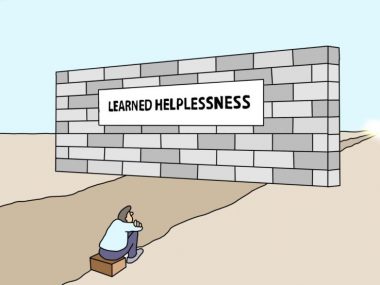In my 20 years sojourn in the printing industry my observation on this subject is what I have tried to articulate in this write up. My organization represents a leading manufacturer for prepress equipment and happens to be one of those who have a dedicated machine for newspaper platemaking. It is Agfa’s believe that the newspaper sector is special and needs a different equipment when it comes to making plates and I totally agree. The newsroom is busy gathering news, but this news will be collated, designed and imposed as needed daily, then plates are made usually from like 10pm to about midnight when the press will then take over and ensure that this perishable goods are done with so they can get to the newsstand before 6am every morning. The newspaper Computer to Plate (CTP) introduced was capable of producing at least 80 plates per hour so that in 2 hours the plates needed for the day are done with and the press can start rolling. We saw some newspaper companies’ still buying commercial CTP’S or even CTCP’S for newspaper printing and that immediately takes away the flexibility, and timely delivery that a dedicated newspaper CTP would bring on the table. My observation is that our counterparts in the rest of the world will engage a professional to advice but we will get a quote from every supplier and simply start serious negotiations with those with the seemingly lowest prices. I always say cheap is not cheap and the video in the below link can help press home the point.
It is most important to buy an equipment that will solve your immediate problem and give room for cost effectiveness and a bridge for your expansion plans on the long run, in the newspaper sector the way to lose money is to consistently get to the newsstand late. I will take the first Nigeria factor as “Lack of appropriate consultation before buying those capital intensive equipment”
2. Lack of attention to little details:
The other day I tried compiling the number of printing equipment that we have installed since the existence of our organization and this number is already tending towards the 200 mark in install base but it will interest you to know that none of this installation has willingly opted for a software upgrade. The few that has been forced to upgrade are those whose software developed a problem and the older version was no longer being supported. The components of modern printing equipment are distinctly hardware and software- the latter drives the former, and as the feedback from the field comes in, the manufacturer develops a newer version that will fix some problems discovered in the older ones. Software upgrade in my opinion has its benefits.
They are;
● Improvements of performance and stability.
● Resolve the potential problems by fixing bugs and errors.
● New features experience.
So in Nigeria we are always stuck with the software that came with the equipment.
3. Operator training and retraining Skilled staff:
I must confess is becoming golden scarce, the observation however is that operators don’t updates their knowledge despite the fact that there are much more resources today, so we have operators that have stopped researching and looking for better ways to get the best out of their machines. You might want to click the below link to get more on the benefits of a well trained staff;
4. Lack of attention to details:
I like the way some people that I follow have put this.
“Attention to detail is not about perfection. It’s about excellence, about constant improvement.” – Chris Denny, Speaker, trainer, business owner
“The difference between something good and something great is attention to detail.” – Charles R Swindoll, pastor & author
“Game management is accomplished by staying constantly alert and then reading and reacting to potential problem situations before they materialize. It all boils down to paying attention to details.” – Jim Evans, businessman, teacher, & politician
Have you noticed that those we look up to pay more attention to details, that small leakage that isn’t fixed on your press will create a big problem tomorrow, that rodent infested printshop is a potential expenses waiting to happen, that relative of yours manning your investment is a leakage that a trained person could fix, that lack of proper accounting is an invitation for tax officials to reap you off, that leaking roof will get rain on that equipment soon, remember that water can be a destructive conductor of electricity, that generator is not the right capacity and you need to get a new one now all because you didn’t care about the little details of the total capacity of the machines in your press. I won’t have time to talk about that small ray of light in a darkroom that keeps costing you a remake all because someone is not paying attention to little details, or that operating temperature that always give you strange problem that you have termed “problem of the village people”, or how that haphazard design will affect your final output…
Hear this; “It’s the little details that are vital. Little things make big things happen.” – John Wooden, Basketball Coach
Corrupt or Sharp practices, not keeping to time, preferring short cuts and tribal or religious sentiments at the expense of merit are some ways to define Nigeria factor otherwise called “the Nigerian Way,” as it affects our industry today. It must be emphasized that this defeatist attitude by some Nigerians in the face of Nigeria’s perverted value system isn’t a reflection of the industry of our dreams. This intense moral decay and acute mental corruption which has seriously affected our society to the extent of it “universally” viewed as reprehensible is paradoxically accepted in the Nigerian context as “working” and the shortest cut to success. In other words, it is the tendency of believing that anything can go in Nigeria, because the country is in a severe state of social disorder. Without conscience we import and dump substandard equipment and consumables for use by our colleagues, we even go as far as defrauding the vulnerable amongst us. No industry strives with this “Nigeria factor” mentality. If we can’t change our nation we can at least start with our immediate sphere of influence- the printing industry!
Thoughts from Akin Oduwole
CE, Technology Global




